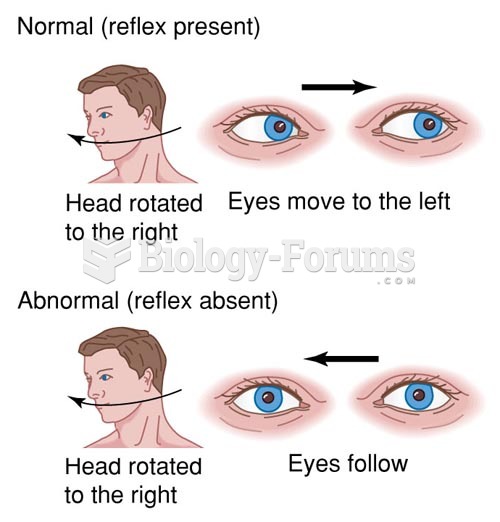Answer to Question 1
Correct Answer: 1,2,3
Rationale 1: This client may not be able to return to a home that requires climbing stairs.
Rationale 2: A client with Down Syndrome needs additional care to ensure that treatment outcome is successful.
Rationale 3: This client may be the family's sole provider and may have financial concerns.
Rationale 4: Many teens seek contraception without their parents' consent. This should not have a negative impact on outcome.
Rationale 5: Residing in foster care should not have a negative impact on outcome.
Global Rationale: The older adult client who suffered a strok may not be able to return to a home that requires climbing stairs. A client with Down Syndrome needs additional care to ensure that treatment outcome is successful. The divorced mother recently diagnosed with breast cancer may be the family's sole provider and may have financial concerns. Many teens seek contraception without their parents' consent. This should not have a negative impact on outcome. Residing in foster care should not have a negative impact on outcome.
Answer to Question 2
Correct Answer: 3
Rationale 1: Assessment of cultural beliefs is important, but with medications, assessment of side effects is initially more important.
Rationale 2: It is premature to teach the importance of medication to the client without first assessing the reason for noncompliance.
Rationale 3: A common side effect of antihypertensive medication in males is sexual difficulty, such as erection problems.
Rationale 4: It is premature to talk to the client's wife.
Global Rationale: A common side effect of antihypertensive medication in males is sexual difficulty, such as erection problems. Assessment of cultural beliefs is important, but with medications, assessment of side effects is initially more important. It is premature to teach the importance of medication to the client without first assessing the reason for noncompliance. It is premature to talk to the client's wife.







